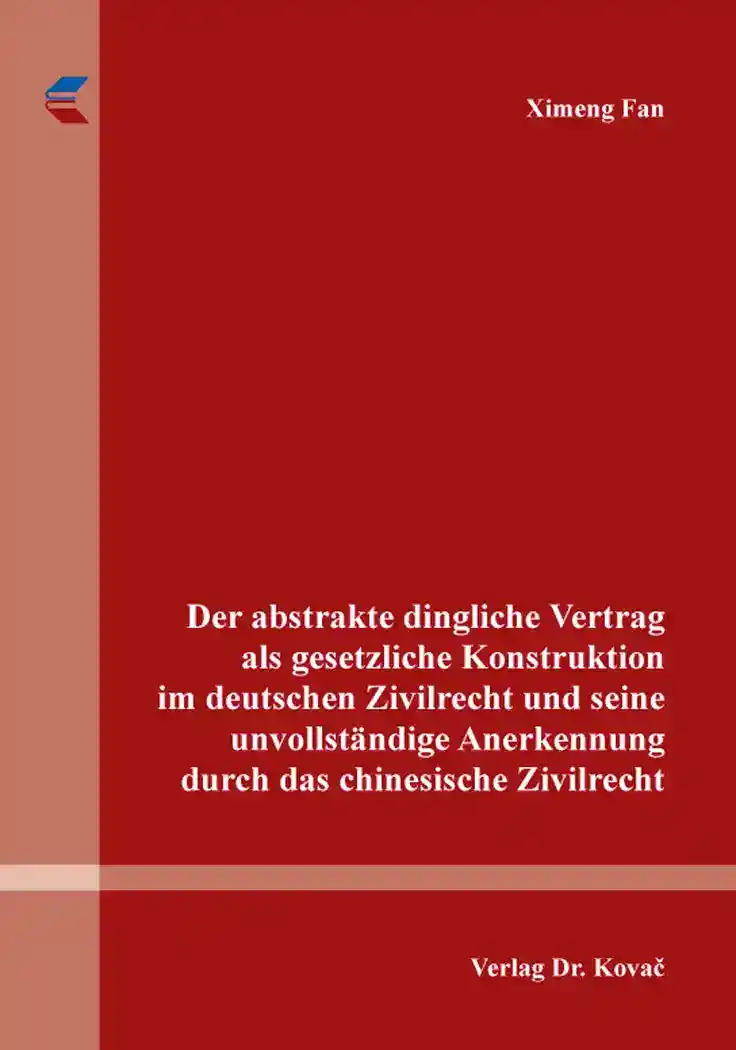Ximeng FanDer abstrakte dingliche Vertrag als gesetzliche Konstruktion im deutschen Zivilrecht und seine unvollständige Anerkennung durch das chinesische Zivilrecht
Studien zum Zivilrecht, volume 116
Hamburg 2020, 198 pages
ISBN 978-3-339-11668-0 (print) |ISBN 978-3-339-11669-7 (eBook)
About this book deutschenglish
The abstract contract of real rights plays an important role in the German civil law. Despite harsh criticism and many attempts to eliminate it and to break through, it is still seen as the special feature of the German Civil Code. Many students find the abstract contract of real rights difficult. But a correct understanding also promotes mastery of the concept of legal act, the separation between the law of obligations and the property law, the unjust enrichment law and the system of bona fide acquisition. This creates a good basis for studying civil law.
It is generally accepted that China has indirectly received German civil law through Taiwanese and Japanese law. Nevertheless, the prevailing opinion in Chinese literature rejects the abstract contract of real rights because, in addition to its remoteness from everyday life, it also affects the interests of the owner. In addition, it is claimed that this kind of contract is unnecessary because its function of protecting legal transactions can be taken over by the protection of good faith. In particular, the French law makes it possible to handle dealings smoothly without recognizing such a contract. Even if some Chinese legal scholars accept the contract of real rights, it remains controversial whether the agreement itself or only the agreement and registration or handover together should be referred to as a contract of real rights.
In this work, on the one hand, a detailed explanation of the abstract contract of real rights is made, that is, from its historical development to its composing of real right agreement and registration or handover to the refutation of the reviews. On the other hand, it is explained whether the abstract contract of real rights exists in the Chinese civil law system, which is similar to the German one. If this is not the case, then the question arises whether Chinese civil law should for some reason recognize the abstract contract of real rights.
Keywords
AbstraktionsprinzipChinaChinesisches RechtDeutschlandDinglicher VertragRechtsvergleichRechtswissenschaftSachenrechtTrennungsprinzipZivilrechtIhr Werk im Verlag Dr. Kovač

Möchten Sie Ihre wissenschaftliche Arbeit publizieren? Erfahren Sie mehr über unsere günstigen Konditionen und unseren Service für Autorinnen und Autoren.
